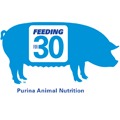 Vitamin supplementation is more important today than ever before. Due to changes in facilities, fewer ration ingredients and increased production capabilities, vitamins must be supplied to sows through the ration.[1] Feeding the correct amounts of high-quality vitamins can impact the sows’ structure, reproductive capabilities and long-term profitability.
Vitamin supplementation is more important today than ever before. Due to changes in facilities, fewer ration ingredients and increased production capabilities, vitamins must be supplied to sows through the ration.[1] Feeding the correct amounts of high-quality vitamins can impact the sows’ structure, reproductive capabilities and long-term profitability.
That’s according to Jon Bergstrom, senior technical support manager for DSM Nutritional Products.

“On average, sows don’t have enough litters to reach their break-even point financially until the third parity, so we have a big opportunity for increasing profitability in the industry,” Bergstrom says, citing research that shows the average breeding sow achieves only 2.5 litters in her lifetime with nearly 30 percent of replacements gilts failing to produce a single litter.[2]
“Nutrition is a major component of reaching production potential and vitamins are an important part of nutrition,” he adds. “Vitamins are often overlooked, but they are essential for life and all of the metabolic functions in the sow.”
Vitamins play an integral role in creating and maintaining bone, muscle, internal organs, blood, and other tissues and fluids of the body; however, the optimum levels of essential vitamins needed for growth and performance are not often found in commercial swine rations. The National Swine Nutrition Guide recommends adding 11 vitamins to sow diets, which are divided into two groups: fat soluble (vitamins A, D, E and K) and water soluble (riboflavin, niacin, pantothenic acid, choline, biotin, vitamin B12, and folic acid).[3]
Bergstrom says that it is a combination of these essential vitamins that helps sows perform to their full potential. In particular, Vitamin D3 can help build and maintain strong skeletons which prevent lameness and promote reproductive capabilities; Vitamin E is essential for an effective immune system; and Vitamin A can help sows return to estrus and produce healthier piglets.
[1] “Vitamins.” North Carolina State University.
http://www.ncsu.edu/project/swine_extension/nutrition/nutritionguide/vitamins/vitamins.htm. 14 August 2013.
[2] “Breeding performance in swine.” DSM Nutritional Products.
http://www.dsm.com/markets/anh/en_US/species/species-swine/species-swine-breedingperformance.html. 14 August 2013.
[3] “Trace minerals and vitamins for swine diets.” National Swine Nutrition Guide.
http://www.usporkcenter.org/FileLibrary/External/USPCE/NSNG/NSNG-Vitamins%20and%20Trace%20Minerals%281%29.pdf. 14 August 2013.

October 16, 2013 - Feeding for 30


